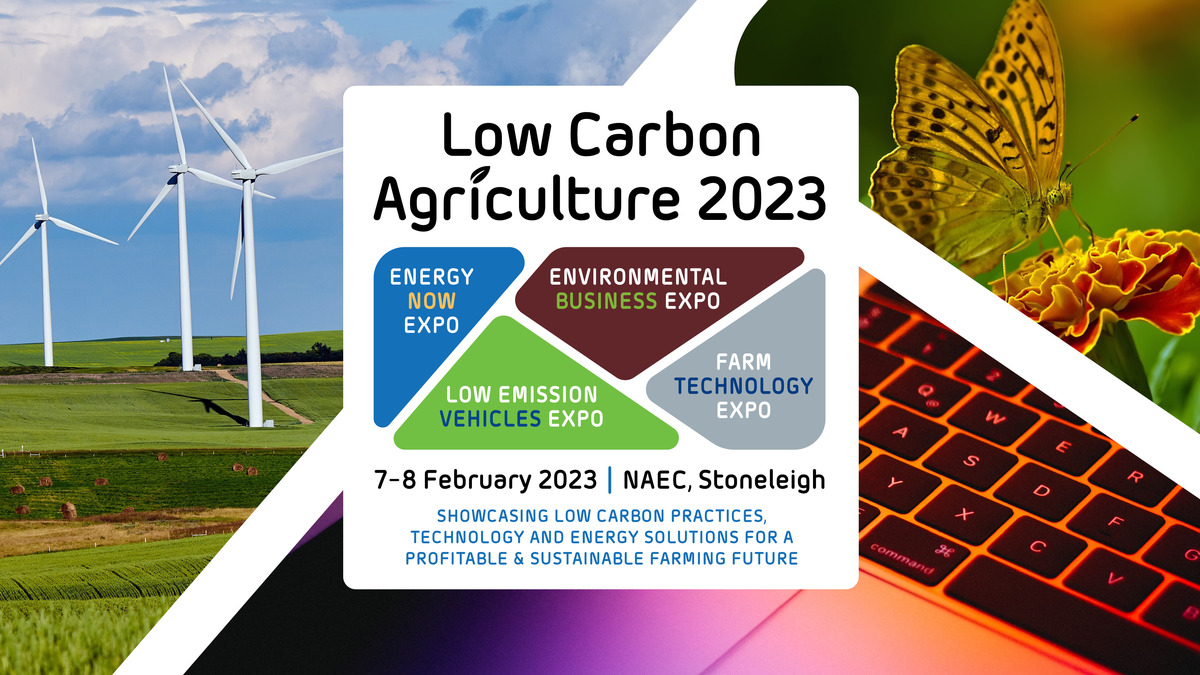The Low Carbon Agriculture Show is an annual event that brings together farmers, researchers, policymakers, and industry professionals to showcase the latest developments in low-carbon farming and sustainable agriculture.
The show, which was in February, featured over 200 exhibitors showcasing the latest technologies and solutions for low-carbon agriculture. From precision farming and agroforestry to renewable energy and waste reduction, the show provided a platform for farmers to explore and adopt sustainable practices that benefit both food production and the environment.
There were also talks and seminars from industry experts and policymakers on the importance of sustainable agriculture and the role it plays in reducing carbon emissions.
Reducing on-farm emissions
Richard Bramley chaired the discussion on ‘Reducing on-farm emissions. During the seminar, Mr Bramley highlighted that industry management is crucial for reducing emissions and emphasised the need for a cohesive approach to achieving this goal.
Complexity calculating on-farm emissions
One important topic discussed was the possibility of creating an industry standard for on-farm greenhouse gas emissions. Given the complexity of calculating on-farm emissions, Mr Bramley questioned whether this was achievable.
However, he agreed that it would be useful for farmers to understand their carbon footprint at both an enterprise and whole-farm level, which policymakers and Defra are interested in.
Economics is the most significant driver for change.
Currently, there are 65 publicly available tools in the UK for measuring carbon emissions. Mr Bramley believes this is too many and calls for existing tool providers to work together, focusing on the details that matter and taking a pragmatic approach to the economics.
Agriculture makes up 11% of the total UK greenhouse gas emissions, and methane from ruminant digestion is a significant contributor. Mr Bramley believes that technologies to remove methane from slurry for use as fuel instead of fossil fuel use are critical.
Practical approach
Overall, Richard Bramley’s chairing at the Low Carbon Agriculture Show offered a practical approach to reducing on-farm emissions, highlighting the key areas where farmers can make changes to reduce their carbon footprint. By measuring emissions and using available tools, farmers can identify areas for improvement and take the necessary steps to reduce their environmental impact.
Sustainable water management
Rob Harrison, a farmer in north Gloucestershire and south Worcestershire, gave a presentation about sustainable water management. The farm, spanning 600 acres, is an organic farm with diverse leys and 200 dairy cows on a forage-based system.
Mr Harrison discussed how they aim to improve soil structure to capture more water and reduce the impact of extreme periods of drought and heavy rain. To achieve this, they are trying to graze grass taller to soak up more carbon and water, supporting climate resilience. Furthermore, Mr Harrison ensures that there is always a crop in the ground, never leaving soil bare over winter.
Net-zero journey
Mr Harrison went on to talk about the farm’s net-zero journey, which included investment in solar panels and energy-saving devices within the dairy.
The farm also has hundreds of meters of hedges to improve biodiversity and carbon storage. Furthermore, the farm participates in Arla’s regenerative pilot project and hosts farm visits as part of this initiative.
Since 2022, Mr Harrison has also explored agroforestry, which involves integrating trees into the farming operation. This involves alley cropping with fruit trees, willow, chicory and walnut.
Agroforestry
Agroforestry can benefit mycorrhizal fungi and act as a wildlife corridor.
Mr Harrison also emphasised the importance of protecting the water environment and is working on improving rainwater goods, which involves working with the Countryside Stewardship Fund (CSF) over the next 12 months.
Rob Harrison shared his farm’s journey toward sustainable water management, incorporating various sustainable practices that aim to improve soil health, water capture, biodiversity and carbon storage and exploring innovative methods such as agroforestry. By sharing his experience, Rob has provided a good example of how farmers can contribute towards sustainable practices that benefit their business, environment and society.
